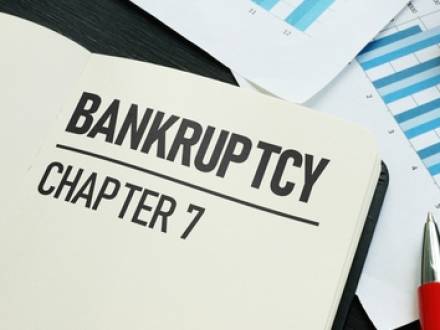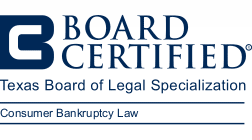Can You Switch from Subchapter V to Chapter 7 in Texas?
 Many entrepreneurs turn to Chapter 11, Subchapter V bankruptcy to reorganize debts without losing control of their business. Unfortunately, this strategy does not always work out as intended. When cash flow collapses or plan payments fall behind, the bankruptcy case can no longer stay in reorganization mode. Fortunately, the Bankruptcy Code allows conversion of a failed Subchapter V to a Chapter 7 liquidation.
Many entrepreneurs turn to Chapter 11, Subchapter V bankruptcy to reorganize debts without losing control of their business. Unfortunately, this strategy does not always work out as intended. When cash flow collapses or plan payments fall behind, the bankruptcy case can no longer stay in reorganization mode. Fortunately, the Bankruptcy Code allows conversion of a failed Subchapter V to a Chapter 7 liquidation.
This provides a crucial safety net that can protect owners from worsening personal exposure, preserve creditor fairness, and bring final closure to an unviable company. Understanding how and when to make the transition from Subchapter V to Chapter 7 bankruptcy is essential to ensure future business opportunities remain viable. The best step you can take should you find yourself in this situation is to speak to a highly experienced Fort Bend, TX bankruptcy attorney.
What is the Purpose of Subchapter V Bankruptcy?
Subchapter V was designed by the Small Business Reorganization Act to simplify reorganization for small companies. It provides a quicker and more affordable process, while providing a path to a fresh financial start through a repayment plan that spreads debt over three to five years. This is achieved through features like shorter deadlines and the ability to confirm a plan without creditor consent, which allows the debtor to remain in control of his or her company. A trustee is appointed to act as an "honest broker" to facilitate negotiations and help the debtor create a workable plan.
Why Do Some Subchapter V Bankruptcy Plans Fail?
While Subchapter V is a viable bankruptcy plan for many small business owners, it can sometimes fail due to:
- Declining post-petition revenue
- Supply chain disruptions
- Ineligibility by the debtor for exceeding the debt limit
- Unrealistic projections
- Loss of key contracts or customers
- A failure by the debtor to file the required documents
- Inaccurate or unclear financial records
- Issues with debt valuation
- Lack of a liquidation analysis
- Misrepresentation of financial information
- Failure to meet obligations like filing tax returns
- The debtor has made unauthorized payments to creditors prior to filing.
When Can Conversion From Subchapter V to Chapter 7 Bankruptcy Become Necessary?
Under 11 U.S. C. Section 1112(b), the court may convert a Subchapter V bankruptcy to a Chapter 7 for "cause." This "cause" usually involves substantial or continuing loss to the estate with no likelihood of rehabilitation, material default under a confirmed plan, mismanagement or failure to file required reports, or fraud. A conversion can be debtor-initiated (voluntary) or trustee or creditor-initiated (involuntary).
What Are the Primary Differences Between Subchapter V and Chapter 7 Bankruptcy?
Under Subchapter V of Chapter 11 bankruptcy, the debtor retains management of the business; under Chapter 7, the trustee takes control of all assets. The goal of Subchapter V is to reorganize and restructure debt, while the goal of Chapter 7 is liquidation. A business usually continues operations under Subchapter V, while it ceases operations under Chapter 7. Under Subchapter V, the business assets are retained and valued for the plan, whereas under Chapter 7, assets are sold to pay creditors. Subchapter V allows the debtor to remain on guarantees, while Chapter 7 results in a discharge of all qualifying debts.
How Does the Bankruptcy Conversion Process Work?
The debtor, the trustee, or a creditor files a motion to convert. There is a notice of hearing, and then the hearing is held before a bankruptcy judge. A Chapter 7 trustee is appointed who will take control of all accounts, records, and property. From this point, the Chapter 7 bankruptcy proceeds to discharge, with liquidation proceeds distributed by statutory priority. There are a couple of alternatives to conversion: a plan modification may be requested for short-term relief, or the case can be dismissed outright (which is risky, since creditors regain the right to collection).
Contact an Austin County, TX Chapter 7 Bankruptcy Lawyer
If your Texas Subchapter V plan is faltering, do not wait for creditors or the court to force liquidation. An experienced Fort Bend, TX Subchapter V bankruptcy attorney from The Fealy Law Firm, PC can help you evaluate whether conversion to Chapter 7 is your best option. Attorney Fealy is focused on helping good people through hard times. Call 713-526-5220 to schedule your free consultation.












